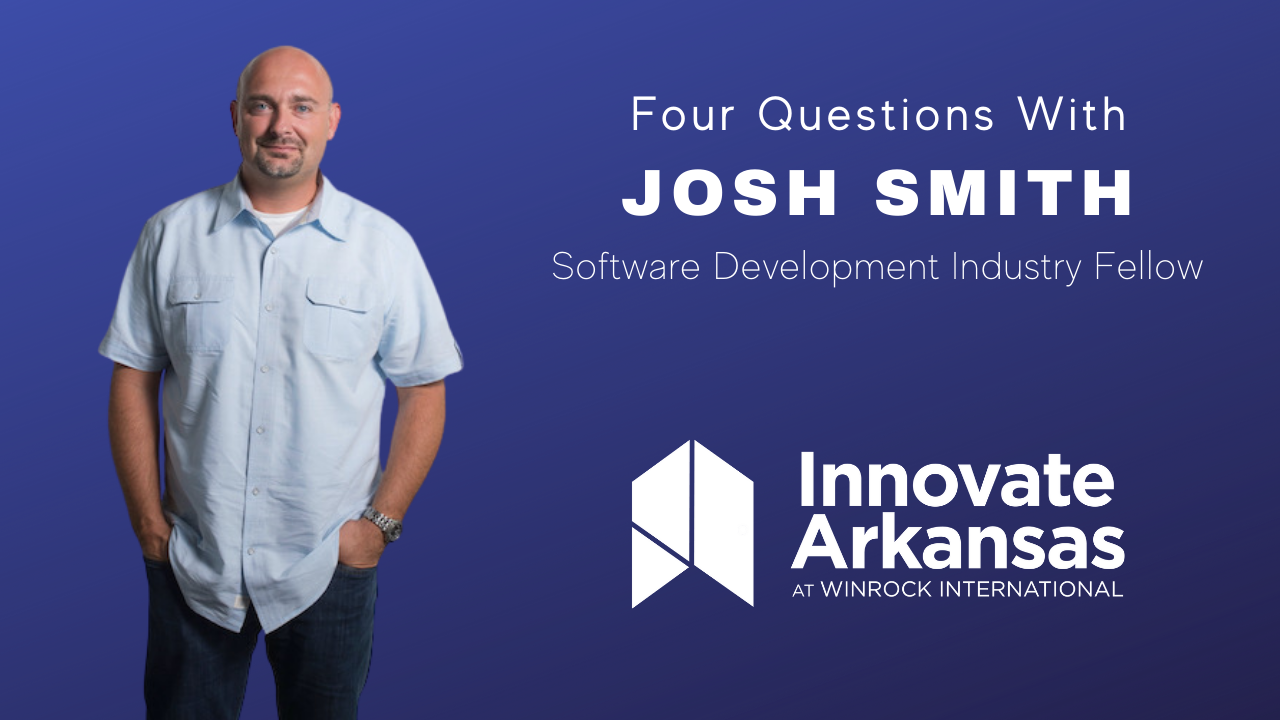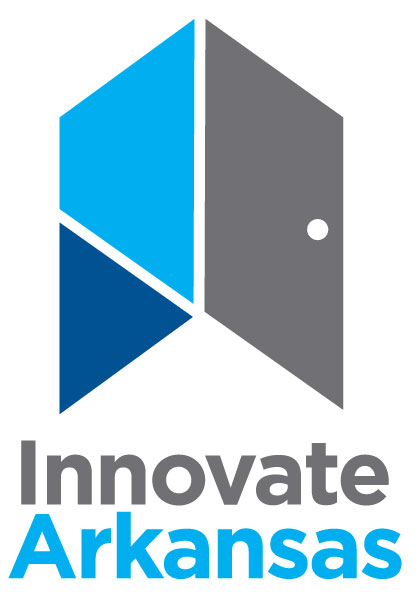Four Questions with Josh Smith, Innovate Arkansas Software Development Industry Fellow
Josh Smith joined the Innovate Arkansas team in late 2019. In his role as Software Development Industry Fellow, Josh advises Innovate Arkansas companies and their leaders on the circuitous process and the factors that affect bringing new technology to market.
Josh is an Arkansas native and military veteran who has a storied career centered around cutting-edge technology. AS CEO of Metova, Josh works with some of the region’s most exciting companies to develop and implement strategic digital transformation solutions leveraging Mobile, IoT, Connected Car, and Connected Home solutions. With extensive experience in mobile and enterprise technologies and operations, Josh possesses a keen yet hard-earned ability to quickly analyze key business drivers and emerging technologies to develop and execute strategic solutions. Before Metova, Josh served as Co-Founder and Chief Operating Officer at PrivacyStar and has held senior positions with FIS Global and Acxiom.
We sat down with Josh to get his insights around real challenges that Arkansas startups face as they approach their software development.
It seems like budgeting for software development is always a challenge. What’s the first step?
Budgeting correctly can be challenging if custom software development isn’t a natural function of your organization because you don’t know what you don’t know. If you are looking to outsource software development for the first time but have experience in-house, planning for 75-100% more than just standard headcount is an excellent place to start planning your budget. Suppose software development is entirely foreign to you. In that case, your best bet is to talk to a few different agencies to get multiple quotes and better prepare yourself for the kinds of questions you will need to answer to begin your project correctly and hit the milestones you need.
Before that first conversation with a prospective software development firm, what are the key things a startup founder needs to know heading into that initial engagement?
Software development companies don’t know your business, your products, or your customers (yet). So be prepared to answer questions about each of those things and have defined your desired product as completely as you can before starting conversations with agencies. If you want someone to build you a house, you can’t just ask for quotes on homes; you need to be very specific — and in that sense, software development is no different. Lastly, when you are evaluating software development companies — ask them questions. Even if you don’t know the "right" answer, ask them questions like what technology it would be built with and why. And when it comes time to choose the company you work with — weigh everything, not just the initial quoted price. Often, the development companies have to make assumptions when coming up with their estimates, and the numbers between companies may not be comparing apples to apples.
Why is a Minimum Viable Product (MVP) so important? Doesn't a company need an assortment of features to launch?
Ensure that you know which customers you are trying to serve, what problems they have, and what they need to achieve solutions to those problems. Without a clear understanding of this, you won't correctly prioritize the features of your product/idea. While you can adjust priorities during the scope of a project, you need precise alignment on what those priorities are. When something changes, you can make the right decisions that will impact your timeline, your budget, or both. Sometimes, the best sources for helping determine your software roadmap are your users. It's common to think that you'll have an extensive list of features, develop a complete application, and then do a major launch. A more realistic way of doing things is to define a minimum set of features that would make your software usable and provide value, build that out, publish and collect feedback, start growing your user base, and do a process of continual development. You'll likely end up with a better end product by taking feedback, and when you reach what would have otherwise been your "Version 1.0", you'll already have a user base.
What’s a significant mistake startup founders make?
You don't want just to start building something and see where it takes you; this is expensive, time-consuming, and results in inferior products. If you spend extra time anywhere in your process, then put those hours into definition and quality assurance. Too many people want to just get to writing code and then ship something as quickly as possible, but chances are you aren't doing your company or your customers any favors with that approach. The most common mistake I’ve seen is starting cheap and then building on top of that. I'm not referring to an MVP model; that’s a great way of doing things, but - when you choose a technology or development company because it is the cheapest option instead of the best option, you're setting an unstable foundation for your future software. It will end up costing you more in the long run rather than building it right at the start.


